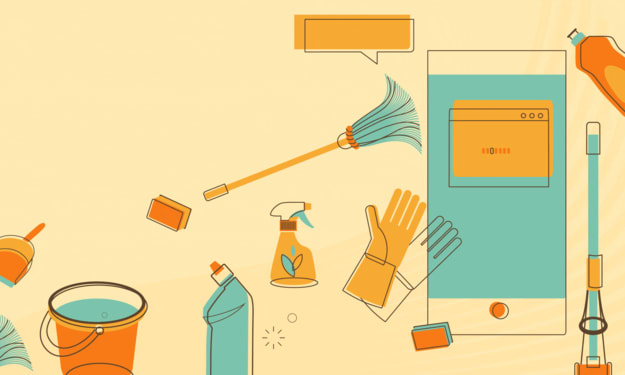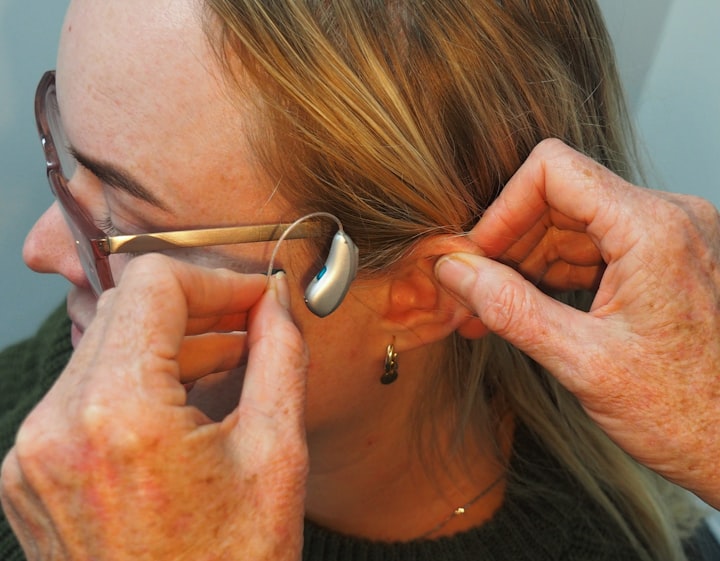10 Psychology Hacks to Help You Overcome Loss
Loss happens, and so does grief. You can overcome both using these useful psychology hacks.

Loss has as many faces as humanity does. Loss can come in the form of a breakup, a death in the family, losing a job, or even getting rejected by people who you thought were friends. Everyone has felt loss of some type at least once in their life, even if they're young.
When it comes to loss, everyone seems to handle it differently. Some get angry, while others mope. Some seem to just get over it fast, while others never quite seem to be the same after losing something they really cared about.
Did you ever wonder how some people seem to be able to overcome grief, loss, and rejection with ease? It could be that they are using these science-backed psychology hacks below.
Pop aspirin to get rid of emotional pain.

It's no secret that emotional loss tends to come with a feeling of pain. In fact, certain types of loss, such as rejection, actively trigger the same parts of the brain as physical pain does.
Surprisingly, studies have shown that popping an aspirin or Tylenol pill can help numb the emotional pain you feel. Why this works still hasn't been fully deduced, but it's clear that it has legitimate effects that can help you work through the pain.
Vent about it.
Did you know that talking to people about subjects that bother you releases a hormone that reduces stress and cortisol? It's true—and a less stressed mind is a mind that tends to be better at bouncing back from grief than others. After all, pain is a catalyst for joy.
That being said, balance is the key. Studies have also shown that prolonged discussion about certain topics can actually prolong the grieving period.
Count your blessings.

Very few things are total losses, and if you really think about it, having something great in your life—even for a short time—is still a net gain in its own way.
If you're grieving over a person, think about the fact that you actually got to bond with that person at all. If you are pissed over losing out on a gig, remember that you still have other skills to fall back on. If you're angry at rejection from a group, remember that you have other friends.
Fake it till you make it.
Believe it or not, studies have shown that you can rewire the brain by forcing yourself to believe certain things. In other words, you are what you believe you are. Using that logic, if you act and say that you're "over" something, you will have a shorter grieving period.
You might be wondering about the common adage that it's "healthy to let it all out." Believe it or not, this isn't really backed by science. Studies actually show people who get very emotional on a regular basis tend to have more anger issues, less contentment, and a harder time overcoming grief. You will eventually have to get past the fake it till you make it phase, but it could prove to be an important stepping stone towards healing.
Reach out to others.

One of the worst things you can do when you're grieving or struggling with major loss is to isolate yourself. Isolation actually tends to cause people to focus on what they just lost—and traps you in a bad thought loop that makes things way worse.
Reach out to others, and you will find yourself in a much healthier state of mind. More importantly, it also will help you maintain your support net through your troubled times.
So, yeah, now is the worst time to stay silent. Now is the worst time to only partially answer questions about your wellbeing, or about how you're feeling. Talk to people. It'll help.
Make a point to exercise.
Exercise doesn't just do a body good; it does a mind good. Science has proven that physical exercise releases "feel good" hormones into your body called endorphins. It's also known for improving brain function, reducing cortisol (the "stress hormone"), and also improving sleep patterns.
A lot of your behavior gets influenced by your body's state of being. By exercising during your times of grief, you're improving your body's ability to stay healthy—which in turn, actually helps you become a mentally strong person.
Pet a puppy.

Puppies aren't just cute; they're really beneficial for mental health, too! Studies on grieving patients showed that people who pet dogs, cats, and other furry friends release oxytocin into their bodies—which in turn, helps them feel better.
In other words, your grief could be helped by your pets. Plus, you don't have to talk to people if you have a face full of fluff.
Put on black colored glasses when looking at what you lost.
Oh, that girl you loved so much? She wasn't really that hot. She farted constantly and couldn't even bake a cake that well. Oh, your dog died? Well, that hairy poop bucket wasn't that important and cost a ton in vet bills.
See where I'm going with this? Call it sour grapes, sure, but let's be realistic. This works for good reason. The more we distance ourselves from what we lose, the less it hurts.
Grab some headphones and listen to music.

Another surprising study showed that listening to music actually helps people parse through their emotions—and that includes the rough emotions dealing with loss like grief, anger, and sorrow.
Okay, maybe it's not too surprising. Many people suffering from emotional pain tend to lean on music when all else seems to fail. It could be their coping mechanism.
Unplug from social media for a bit.
Psychology hacks can only go so far when it comes to the way you're carrying yourself after a particularly devastating loss. So, if you notice yourself becoming unglued, you might as well hack damage control.
Translation? Unplug from your social media so you don't make an ass out of yourself.
About the Creator
Ossiana Tepfenhart
Ossiana Tepfenhart is a writer based out of New Jersey. This is her work account. She loves gifts and tips, so if you like something, tip her!






Comments
There are no comments for this story
Be the first to respond and start the conversation.